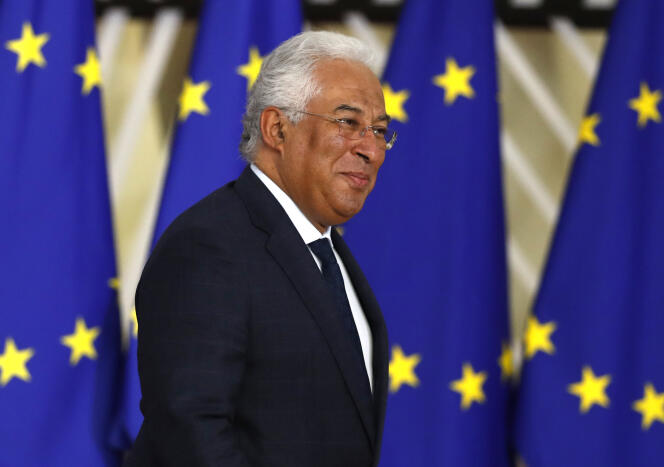Early Life and Education
António Luís Santos da Costa was born on July 17, 1961, in Lisbon, Portugal. He hails from a family with a rich cultural and political background. His father, Orlando da Costa, was a well-known writer and communist activist of Goan descent, while his mother, Maria Antónia Palla, is a journalist and feminist. Costa’s diverse heritage and intellectual upbringing played a significant role in shaping his worldview and political ideology.
Costa studied law at the University of Lisbon, where he became involved in student politics. His early engagement in political activities set the stage for his future career in public service.
Early Political Career
António Costa’s political career began in earnest in the 1980s when he joined the Socialist Party (PS). He was elected to the Portuguese Parliament in 1991 and soon became known for his dedication and ability to navigate complex political landscapes. Costa held various significant positions within the party and the government over the years.
One of his early prominent roles was as the Minister of Parliamentary Affairs from 1995 to 1999 under Prime Minister António Guterres. In this capacity, Costa was responsible for managing the government’s relationship with the parliament, a role that honed his skills in negotiation and coalition-building.
Mayor of Lisbon
In 2007, António Costa was elected as the Mayor of Lisbon, a position he held until 2015. His tenure as mayor was marked by substantial urban development and modernization projects that transformed Lisbon into a more vibrant and livable city. Costa focused on improving public transportation, urban renewal, and sustainability initiatives. His leadership in Lisbon garnered him widespread recognition and solidified his reputation as a capable and innovative leader (European Union).
Prime Minister of Portugal
In 2015, António Costa became the Prime Minister of Portugal. His rise to this position was notable due to the political circumstances; Costa’s Socialist Party did not win the most seats in the parliamentary election. However, through strategic alliances with smaller leftist parties, Costa was able to form a minority government. This coalition, known as the “Geringonça,” proved to be stable and effective, allowing Costa to govern successfully.
During his time as Prime Minister, Costa implemented numerous reforms aimed at economic recovery and social justice. Portugal’s economy, which had been struggling following the 2008 financial crisis, saw significant improvements under his leadership. Costa focused on reducing the budget deficit, lowering unemployment rates, and promoting social welfare programs. His government also emphasized renewable energy and environmental sustainability, positioning Portugal as a leader in green policies in Europe.
Costa’s tenure as Prime Minister was marked by his ability to balance fiscal responsibility with social equity, earning him respect both domestically and internationally (European Union) (Wikipedia).
European Political Influence
António Costa’s influence extended beyond Portugal. As Prime Minister, he played a crucial role in European Union affairs, advocating for stronger EU integration and solidarity among member states. He was particularly vocal during the COVID-19 pandemic, calling for coordinated European responses to health and economic challenges. Costa’s leadership in securing European recovery funds for Portugal demonstrated his adeptness at navigating EU politics and securing favorable outcomes for his country.
Chairman of the European Council
On June 27, 2024, António Costa was elected as the Chairman of the European Council. This prestigious position involves leading the European Council’s work in defining the EU’s general political direction and priorities. The role also includes promoting cohesion and consensus among EU member states and representing the EU externally on foreign and security issues.
Costa’s election to this role is seen as a recognition of his extensive experience and success in both national and European politics. His tenure as Chairman is expected to focus on fostering unity within the EU, addressing economic and social challenges, and reinforcing the EU’s global standing.
Personal Life and Legacy
António Costa is known for his pragmatic approach to politics and his ability to build bridges across different political factions. He is fluent in several languages, including Portuguese, French, and English, which has facilitated his international engagements.
Costa’s personal life is relatively private. He is married to Fernanda Tadeu, a teacher, and they have two children. His multicultural background and personal experiences have contributed to his inclusive and progressive political stance.
Conclusion
António Costa’s journey from a young law student in Lisbon to the Chairman of the European Council is a testament to his dedication, skill, and vision. His leadership has not only transformed Portugal but also left a significant mark on European politics. As he assumes his new role, Costa’s experience and pragmatic approach are expected to guide the EU through the complex challenges of the future, promoting unity, stability, and progress across the continent.








